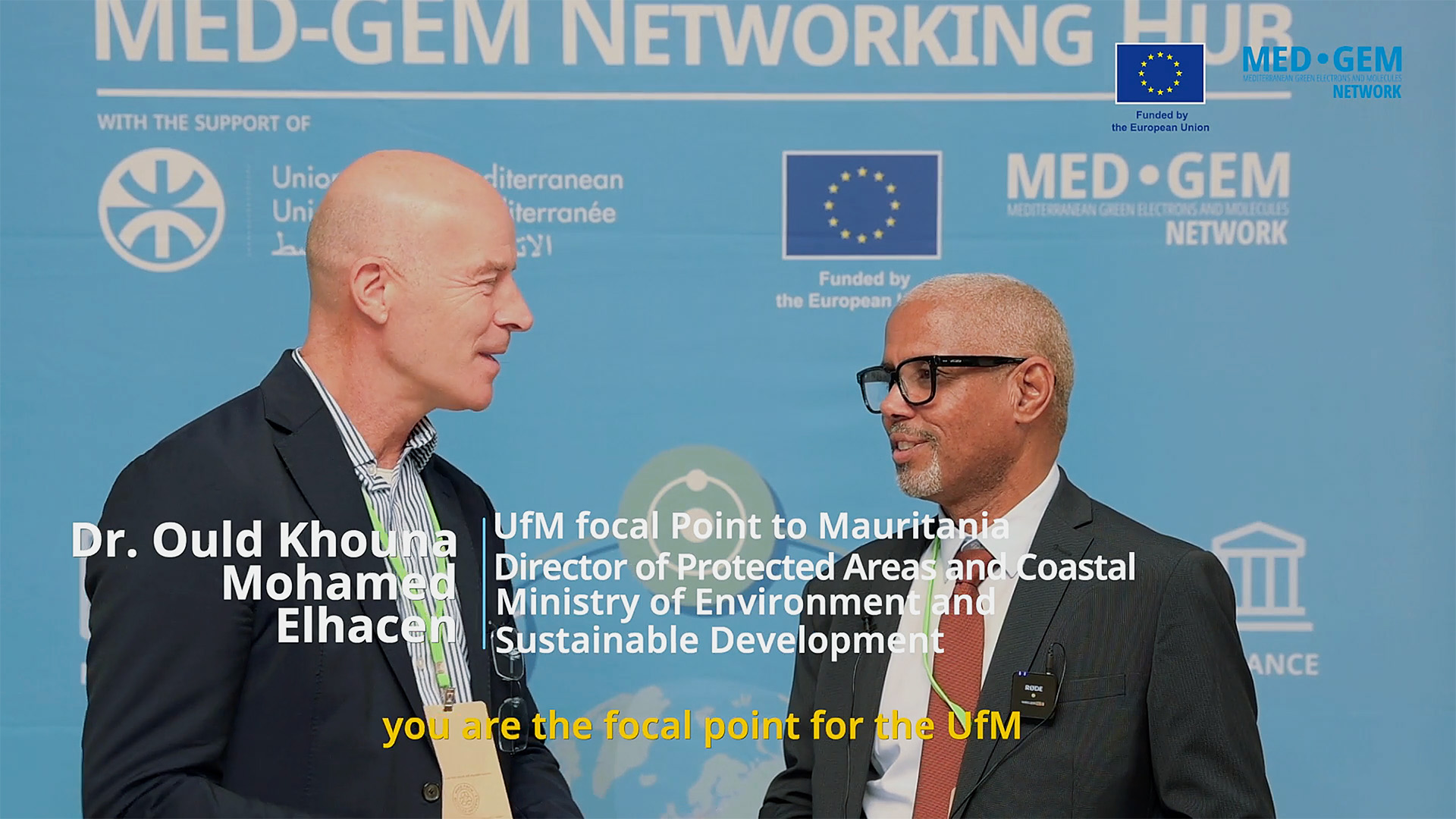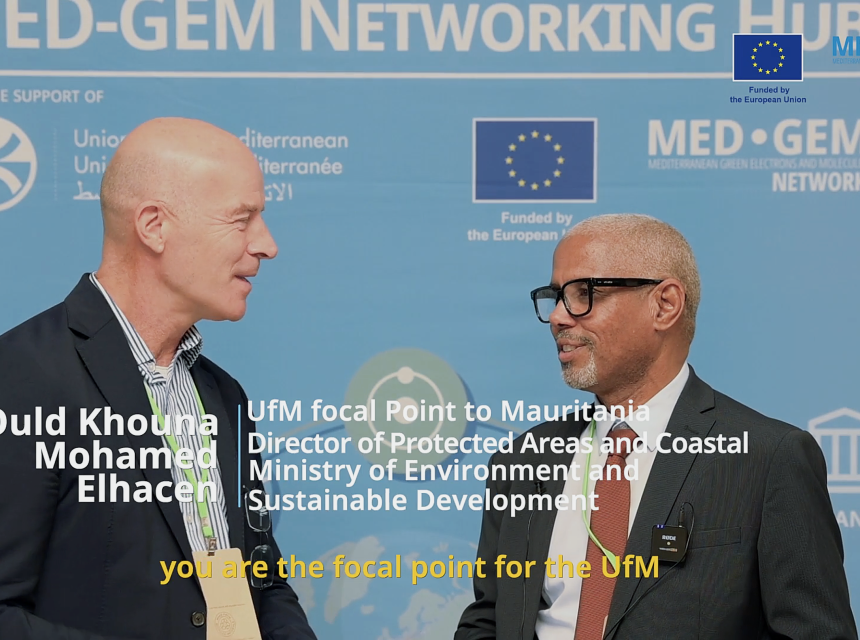GH2: Mauritania’s posed to be the next Power Houses of the Twenty-First Century
The Mediterranean Green Week in Istanbul, orchestrated by the Union for the Mediterranean and the OECD, provided a unique platform for dialogue on the future of sustainable energy in the region. Among the many voices, Dr. Ould Khouna Mohamed Elhacen, Mauritania’s focal point for the Union for the Mediterranean (UfM) and Director of Protected Areas and Coastal at the Ministry of Environment and Sustainable Development, offered a compelling vision of his country’s green energy potential during an interview with Frank Wouters, director of the MED-GEM Network.
Mauritania, often perceived as a marginal player on the global stage, is positioning itself as a future powerhouse in renewable energy. Dr. Elhacen highlighted the nation's strategic initiatives aimed at harnessing its vast solar and wind resources, along with its burgeoning interest in green hydrogen. He emphasised that Mauritania's ambition is underpinned by a robust strategy targeting 2050, designed to curtail CO2 emissions and bolster economic growth through sustainable practices.

A Wealth of Renewable Resources
Mauritania's geographical advantage is clear. Located at the cusp of the Sahara Desert, it boasts high solar irradiance and strong, consistent winds—key ingredients for a renewable energy bonanza. The country's vision is not just about energy production for domestic consumption but also about becoming a significant player in the global green hydrogen market. This aligns with the global push towards decarbonisation and the transition from fossil fuels to sustainable alternatives.
Dr. Elhacen pointed to several international partnerships that Mauritania has fostered as part of its strategy to attract investment and expertise. These collaborations aim to bolster the nation's capacity to manage and expand its renewable energy infrastructure. By 2050, Mauritania hopes to have built a resilient, green economy, minimising its carbon footprint and creating thousands of green jobs.
Bridging the Capacity Gap
While Mauritania’s potential is vast, Dr. Elhacen was candid about the challenges ahead. The primary obstacle is the need for capacity building and technology transfer. The country's current infrastructure and workforce are not yet fully equipped to exploit its renewable resources to their fullest. “The problem we have is a problem of capacity building, technology transfer, and mastering the techniques,” Dr. Elhacen remarked, emphasising the need for training and the development of technical expertise within the local workforce.
This gap, however, is seen as an opportunity rather than a hindrance. Mauritania's government is actively seeking partnerships with educational institutions and international organisations to enhance the skills of its young, vibrant population. With adequate training and knowledge transfer, Mauritania’s youth could lead the country into a new era of green prosperity.
A Call to Investors
Mauritania is extending an open invitation to international investors. The country offers a favourable regulatory environment, with tax incentives and a commitment to creating a stable, investment-friendly climate. Dr. Elhacen assured potential investors that Mauritania is a “tax haven in terms of win-win partnerships with all investors,” highlighting the absence of legal barriers to foreign investment.
The government’s proactive stance is further exemplified by its engagement with major financial institutions like the World Bank and the International Carbon Fund, focusing on projects that drive the adoption of renewable energy. This engagement is part of Mauritania's broader strategy to integrate into global green energy markets and to establish itself as a reliable partner for Europe and beyond.
Looking Ahead
Mauritania’s ambition to become a green energy leader is more than aspirational. With its strategic vision, natural resources, and growing international collaborations, the country is laying the groundwork for a sustainable future. The commitment to overcoming challenges through capacity building and technological advancement is a testament to its readiness to take on a significant role in the global renewable energy landscape.
As Frank Wouters aptly put it, Mauritania could very well become one of the next Power Houses of the Twenty-First Century. The journey will not be without hurdles, but with continued dedication and strategic partnerships, Mauritania’s green energy revolution seems not just possible, but imminent.

